### Avoid These Common Vegan Diet Pitfalls
The vegan diet has gained immense popularity over the years, with more individuals opting for a plant-based lifestyle for ethical, environmental, or health reasons. While a vegan diet can offer numerous benefits, including improved heart health, weight loss, and a lower risk of certain diseases, it is not without its challenges. Transitioning to a vegan diet requires careful planning to ensure nutritional adequacy and avoid common pitfalls. This article will explore some of the most common mistakes people make when adopting a vegan diet and how to avoid them.
1. Inadequate Protein Intake
One of the most prevalent misconceptions about a vegan diet is that it is difficult to consume enough protein. While it’s true that animal products are rich sources of protein, a well-planned vegan diet can provide adequate protein from plant-based sources. Common mistakes include relying too heavily on processed vegan foods or not diversifying protein sources.
Solution:
To meet your protein needs, include a variety of protein-rich plant foods in your diet, such as lentils, chickpeas, tofu, tempeh, edamame, quinoa, nuts, seeds, and whole grains. Aim for a balanced intake throughout the day to ensure that you are getting all the essential amino acids your body needs. Incorporating a variety of these foods can help you maintain a balanced and nutritious diet.
2. Vitamin B12 Deficiency
Vitamin B12 is a crucial nutrient that plays a vital role in nerve function and the production of DNA and red blood cells. It is naturally found in animal products, making it a nutrient of concern for those on a vegan diet.
Solution:
Vegans should seek fortified foods or take a B12 supplement to meet their daily requirements. Fortified foods include certain plant milks, breakfast cereals, and nutritional yeast. It’s advisable to regularly check your B12 levels, especially if you have been vegan for a while, to avoid health complications such as anemia or neurological issues.
3. Insufficient Iron Intake
Iron is another nutrient that can be challenging to obtain in a vegan diet, as the type of iron found in plant foods (non-heme iron) is not as easily absorbed by the body as the heme iron found in animal products.
Solution:
To enhance iron absorption, consume iron-rich foods like beans, lentils, spinach, and fortified cereals alongside vitamin C-rich foods, such as citrus fruits, strawberries, or bell peppers. Cooking with cast-iron cookware can also increase the iron content of food. Regularly monitoring your iron levels with a healthcare provider can help prevent deficiencies.
4. Overconsumption of Processed Foods
With the rise of vegan-friendly products, it’s easy to fall into the trap of relying on processed foods. While these foods can be convenient, they often contain high levels of unhealthy fats, sugars, and sodium.
Solution:
Focus on whole, minimally processed foods for the majority of your diet. Prioritize fresh fruits, vegetables, whole grains, legumes, nuts, and seeds. When purchasing packaged products, read labels carefully and choose options with fewer additives and preservatives. Cooking at home allows you to control the ingredients and ensure a more balanced and nutritious diet.
5. Lack of Omega-3 Fatty Acids
Omega-3 fatty acids are essential for brain health and reducing inflammation in the body. While these are commonly found in fish, vegans need to find alternative sources.
Solution:
Incorporate flaxseeds, chia seeds, hemp seeds, and walnuts into your diet, as they are good sources of alpha-linolenic acid (ALA), a type of omega-3. Additionally, consider taking an algae-based omega-3 supplement that provides EPA and DHA, the active forms of omega-3 fatty acids found in fish.
6. Calcium and Vitamin D Deficiency
Calcium and vitamin D are essential for maintaining healthy bones. Although dairy products are a primary source of these nutrients, vegans must find alternative sources.
Solution:
Consume calcium-fortified plant milks, tofu, almonds, and leafy green vegetables like kale and broccoli. Spend time outdoors for natural sunlight exposure to promote vitamin D synthesis. During the winter months or in regions with limited sunlight, consider a vitamin D supplement to ensure adequate intake.
7. Not Drinking Enough Water
Hydration is essential for overall health, yet many people underestimate their water needs, especially when consuming a high-fiber vegan diet.
Solution:
Ensure you drink enough water throughout the day, aiming for at least 8 cups (2 liters) or more based on your activity level and climate. Eating water-rich foods like fruits and vegetables can also contribute to your hydration needs.
8. Ignoring Food Labels
While transitioning to a vegan diet, it’s imperative to carefully check food labels to ensure that products are free from animal-derived ingredients, which can sometimes be hidden in processed foods.
Solution:
Get familiar with common non-vegan ingredients such as gelatin, casein, and certain colorings like carmine. Opt for products that are certified vegan or consult with manufacturers if in doubt. Additionally, learning to cook from scratch can help you maintain control over the ingredients used in your meals.
9. Social and Emotional Challenges
Adopting a vegan lifestyle can sometimes lead to social and emotional challenges, especially if your family and friends do not share your dietary choices.
Solution:
Communicate openly with your loved ones about your dietary choices and the reasons behind them. Seek out vegan communities or online forums for support and advice. Hosting vegan-friendly gatherings or sharing vegan recipes can also help bridge the gap with non-vegan friends and family.
10. Lack of Meal Planning
Without proper meal planning, it can be easy to fall back on unhealthy food choices or miss out on essential nutrients in a vegan diet.
Solution:
Set aside time each week to plan your meals and snacks. Create a shopping list that includes a variety of whole foods to ensure a balanced diet. Preparing meals in advance can save time and reduce the temptation to rely on convenience foods.
In conclusion, while a vegan diet offers numerous health and environmental benefits, it requires careful planning and consideration to avoid common pitfalls. By being mindful of your nutrient intake and maintaining a balanced diet, you can enjoy the advantages of a vegan lifestyle without compromising your health. Remember to consult with a healthcare provider or a registered dietitian if you have any concerns about your nutritional intake while following a vegan diet.




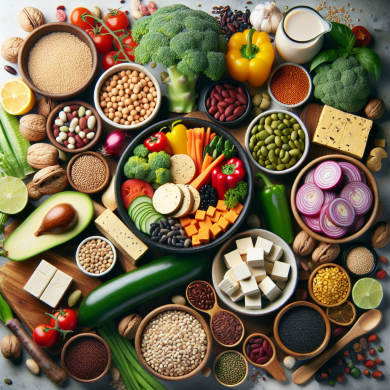
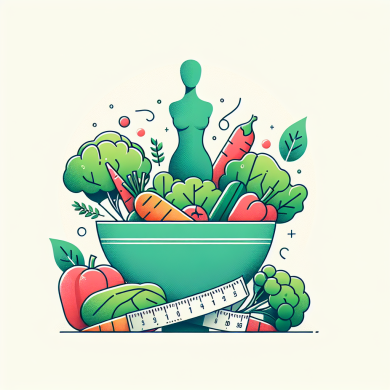
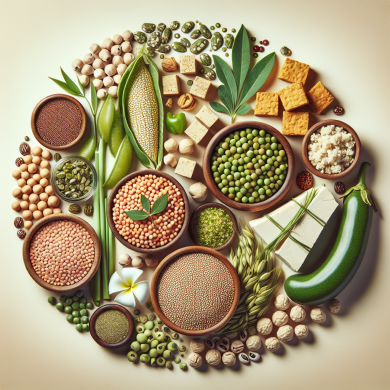
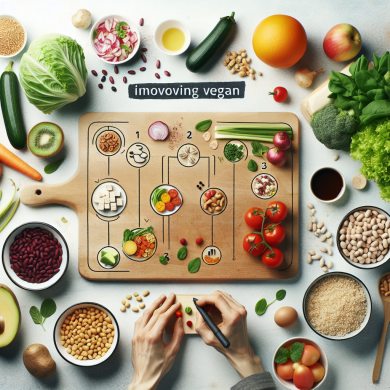
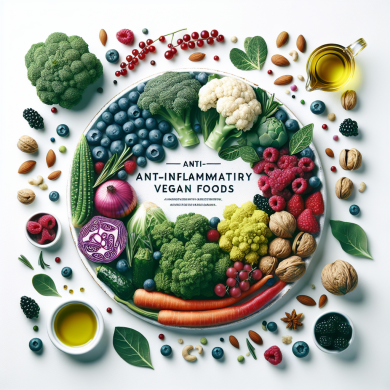
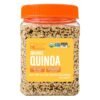

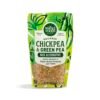



Add comment